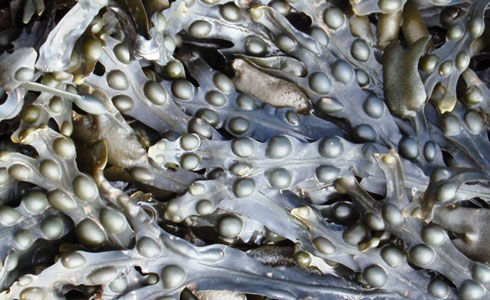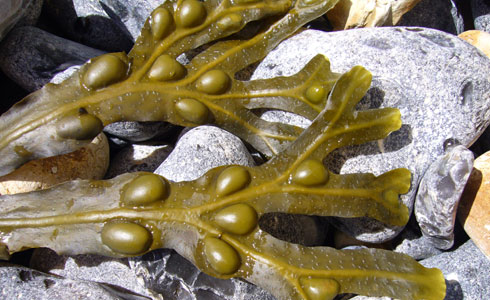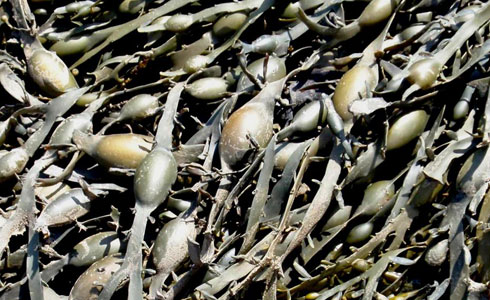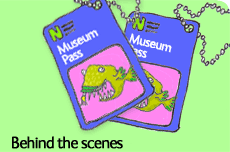- Home
- > Nature online
- > British natural history
- > Big Seaweed Search
- > Identify seaweeds
- > Seaweeds of the middle shore
Primary navigation
Seaweeds of the middle shore

Bladder wrack, Fucus vesiculosus
Location: Bladder wrack is usually found on the middle shore.
Identification: Bladder wrack has round air bladders that look like bubblewrap, usually in pairs either side of the mid-rib. Its fronds can grow up to 1m long.
Facts: The air bladders allow the seaweed to float upright when underwater. The number of air bladders on each frond depends upon how exposed the shoreline is – on exposed shores bladder wrack has fewer air bladders than on sheltered shores.

A close-up of bladder wrack, Fucus vesiculosus

Egg wrack, Ascophyllum nodosum
Location: This species occurs in sheltered areas where it can be very abundant on the middle part of the shore.
Identification: Egg wrack has single, large (1-5cm long) egg-shaped air bladders growing along the length of its strap-like fronds. Fronds can grow up to 1.5m long.
Facts: Each air bladder equates to 1 year of growth. You may see what look like coarse, woolly red tufts on the fronds - these are actually another species of seaweed called Polysiphonia lanosa, which often grows on egg wrack.
Related information
Toolbox

In World War II the Museum was used as a secret base to develop new gadgets for allied spies, including an exploding rat!
- Contact and enquiries
- Accessibility
- Site map
- Website terms of use
- © The Trustees of the Natural History Museum, London
- Information about cookies
- Mobile